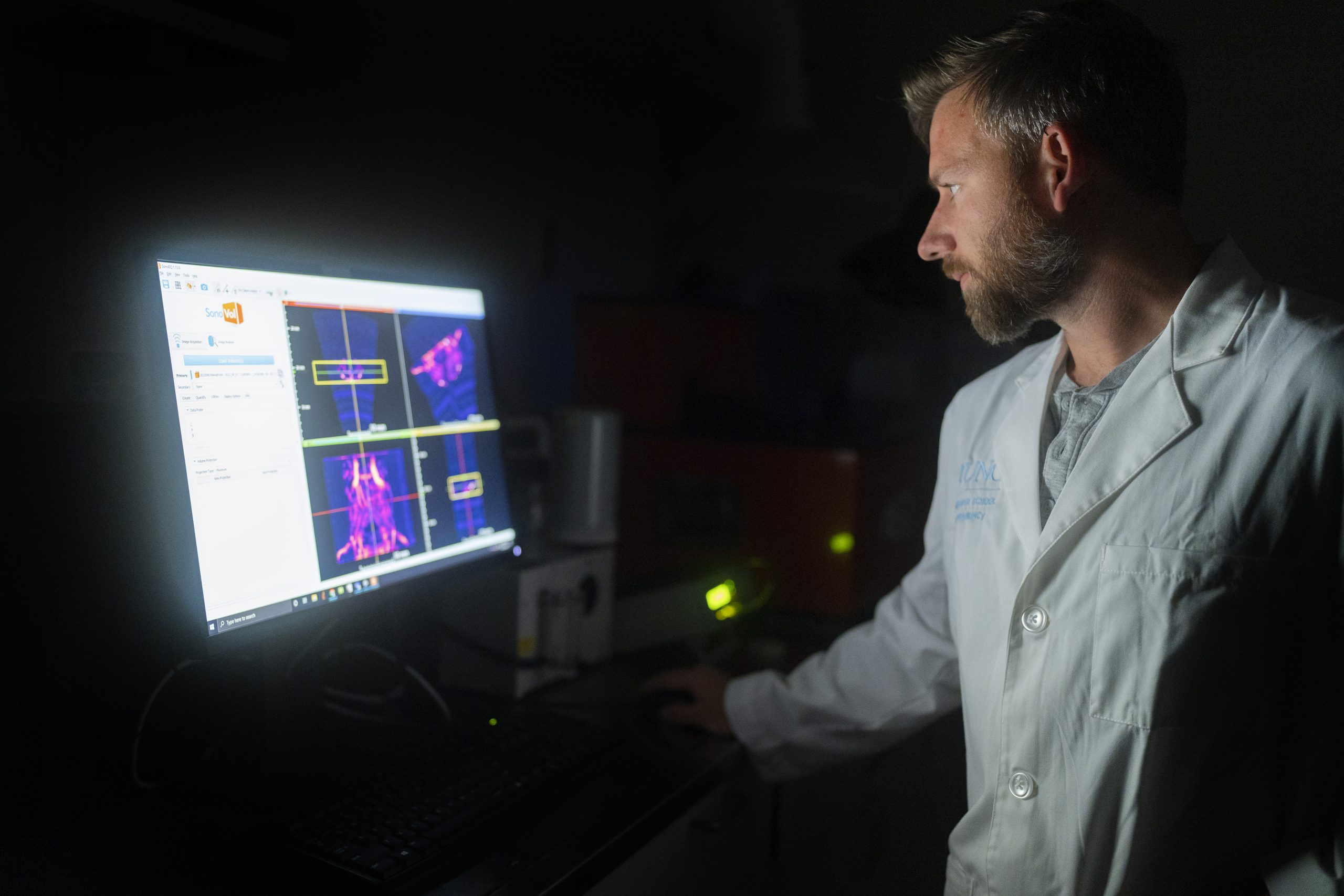Graduate Program
Program Overview
The Joint Department of Biomedical Engineering at UNC-Chapel Hill & NC State University prepares graduate students for excellence in innovation, leadership and service by leveraging the full suite of academic, research and professional development resources available through our two powerhouse universities and the surrounding biotechnology industry in Research Triangle Park, NC. This uniquely enabling consortium, and the distinctively collaborative environment in which it thrives, enriches the training experiences of our graduate students in a manner that cannot be achieved elsewhere.
 Prospective Ph.D. Student Opportunities
Prospective Ph.D. Student Opportunities
Graduate students reap the many benefits of our truly joint department, with full student privileges and access to resources across both UNC and NC State campuses. From selecting research advisers and dissertation projects to choosing committee members, from taking classes to competing for awards and recognitions, from accessing specialized equipment and facilities to receiving professional mentorship, our graduate students have two campuses worth of opportunities. These opportunities are easily exploited given the close proximity of the two campuses and the free and convenient BME shuttle bus that travels between them. While most students spend the majority of their time on a single campus, important extensions to the other are what make our graduate program exceptional.
The BME graduate experience is further strengthened by our state-of-the-art laboratory spaces that were custom designed to meet the specific needs of biomedical research. These spaces are strategically located on the medical campus at UNC and the engineering campus at NC State to readily support collaborations with clinical and basic science colleagues across both universities. In Chapel Hill, the BME department is housed in the newly renovated Mary Ellen Jones building, which sits adjacent to UNC Hospitals, the UNC Lineberger Comprehensive Cancer Center, the UNC Eshelman School of Pharmacy and the UNC Gillings School of Global Public Health. In Raleigh, BME is located on Centennial Campus, immediately adjacent to mechanical, electrical and computer and chemical engineering and nearby the Wilson College of Textiles. Moreover, Centennial Campus is home to numerous industry partners and is just down the street from the NC State College of Veterinary Medicine.
Importantly, our graduate students are members of the diverse and vibrant communities of the Research Triangle, bounded by Raleigh, Durham and Chapel Hill, located in beautiful North Carolina. The 2.1 million inhabitants of the Research Triangle hail from a variety of states and countries. And they constitute one of the highest per capita concentrations of doctoral degree holders in the country. With its temperate climate, two hours drive to the beach and three hours to the mountains, and an affordable cost of living, it is little wonder the Research Triangle continues to grow.
Highlights: BME by the Numbers
The BME Graduate Student Association is a student-run organization representing the Joint Department of Biomedical Engineering at UNC-Chapel Hill and North Carolina State University. Visit their website for BME news updates, details on upcoming GSA events, as well as various career resources. Contacts Director of Graduate Studies Graduate Program Coordinator MS MedTech Program Director MS MedTech Assistant Program Director
Many BME graduate students participate in highly specialized NIH-sponsored training programs with tailored curricula that blend input from experts across several disciplines. Moreover, BME students successfully compete for individual training grants from the NIH and NSF, securing for themselves both funding and prestige.
Graduate Student Association
Matt Fisher, Ph.D.
(919) 515-5242
mbfisher@ncsu.edu
Vilma Berg
(919) 445-6051
vberg@email.unc.edu
David Zaharoff
(919) 515-6757
dazaharo@ncsu.edu
Matt Penny
(919) 524-4497
mrpenny@ncsu.edu


